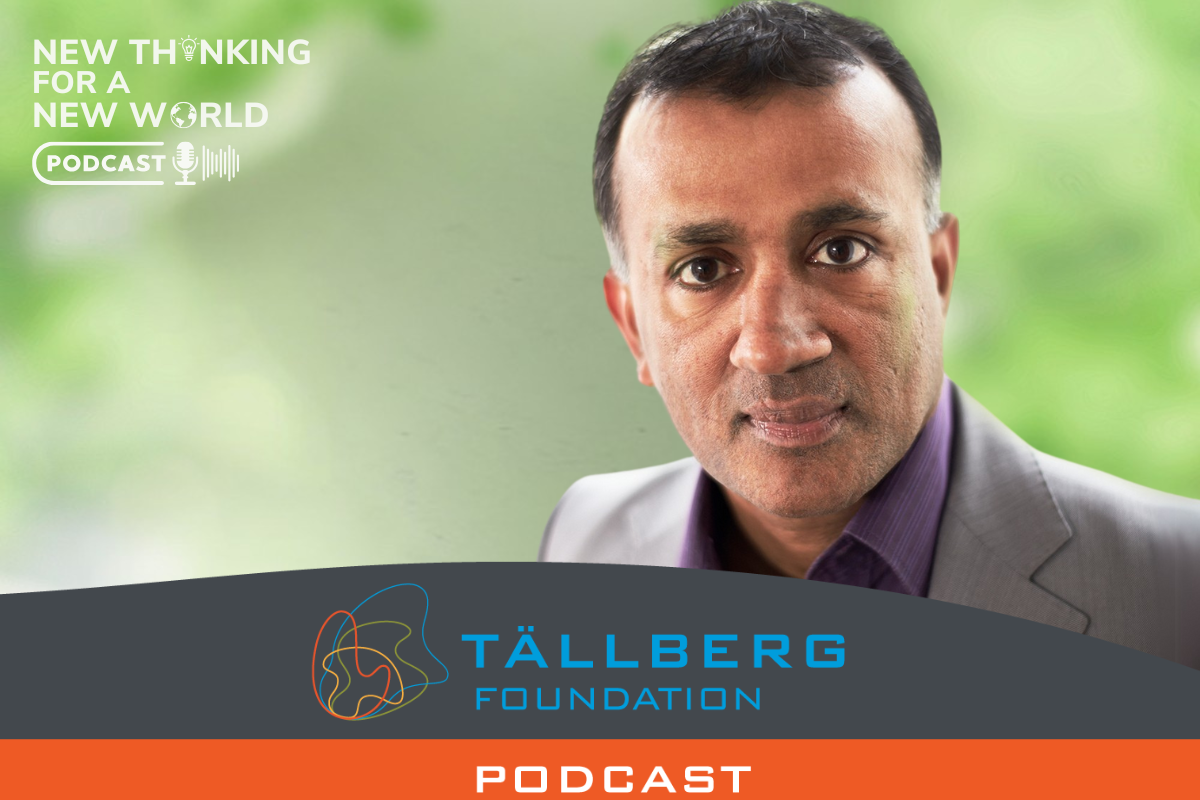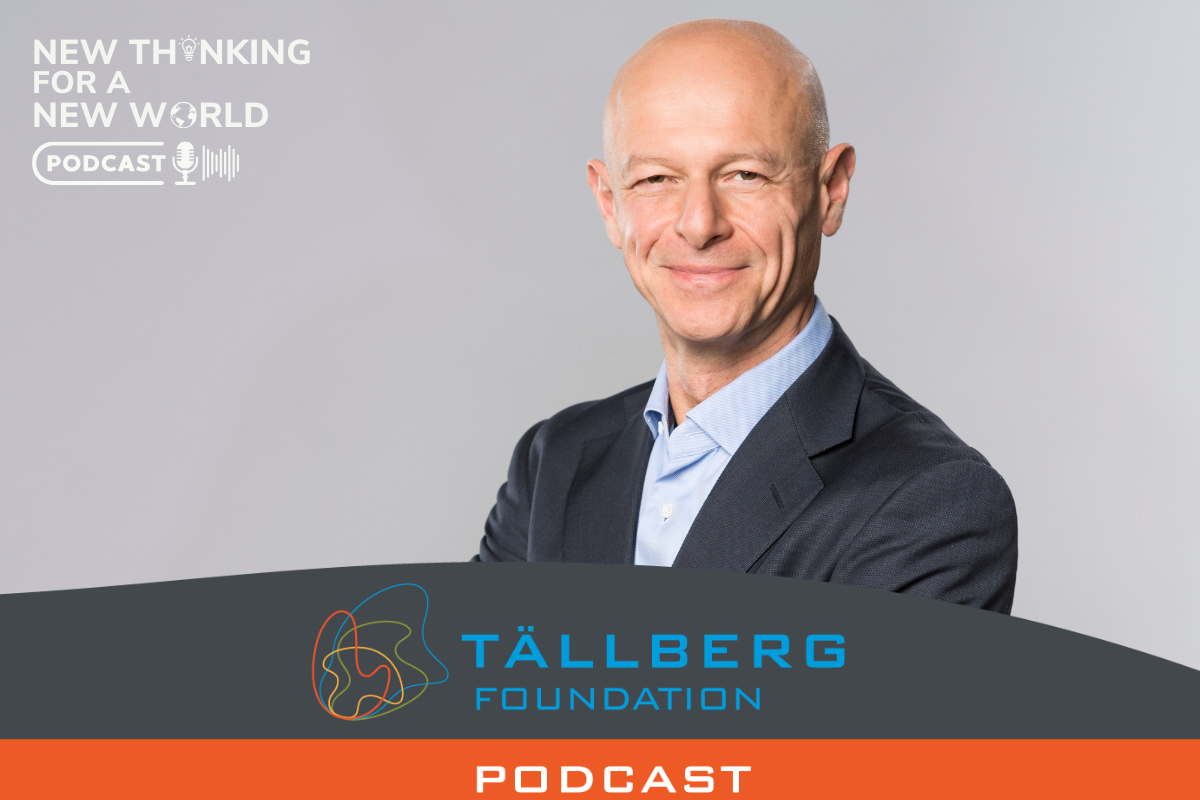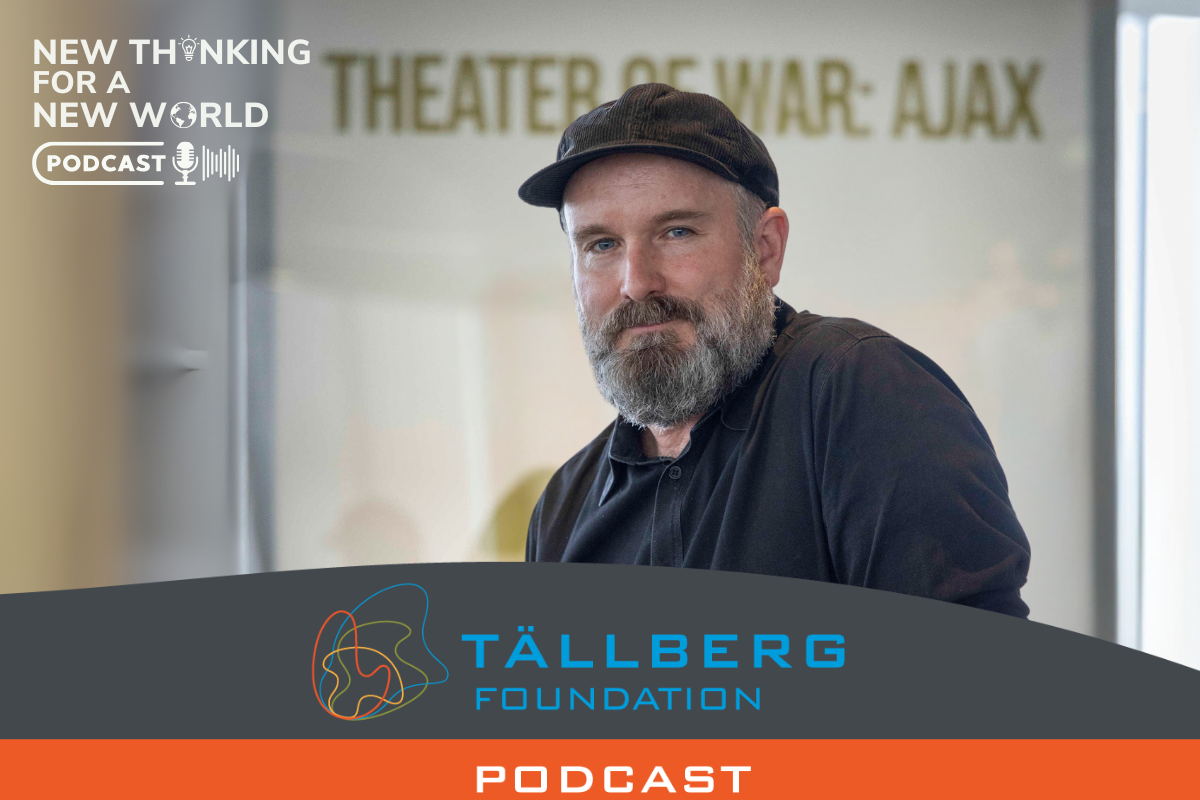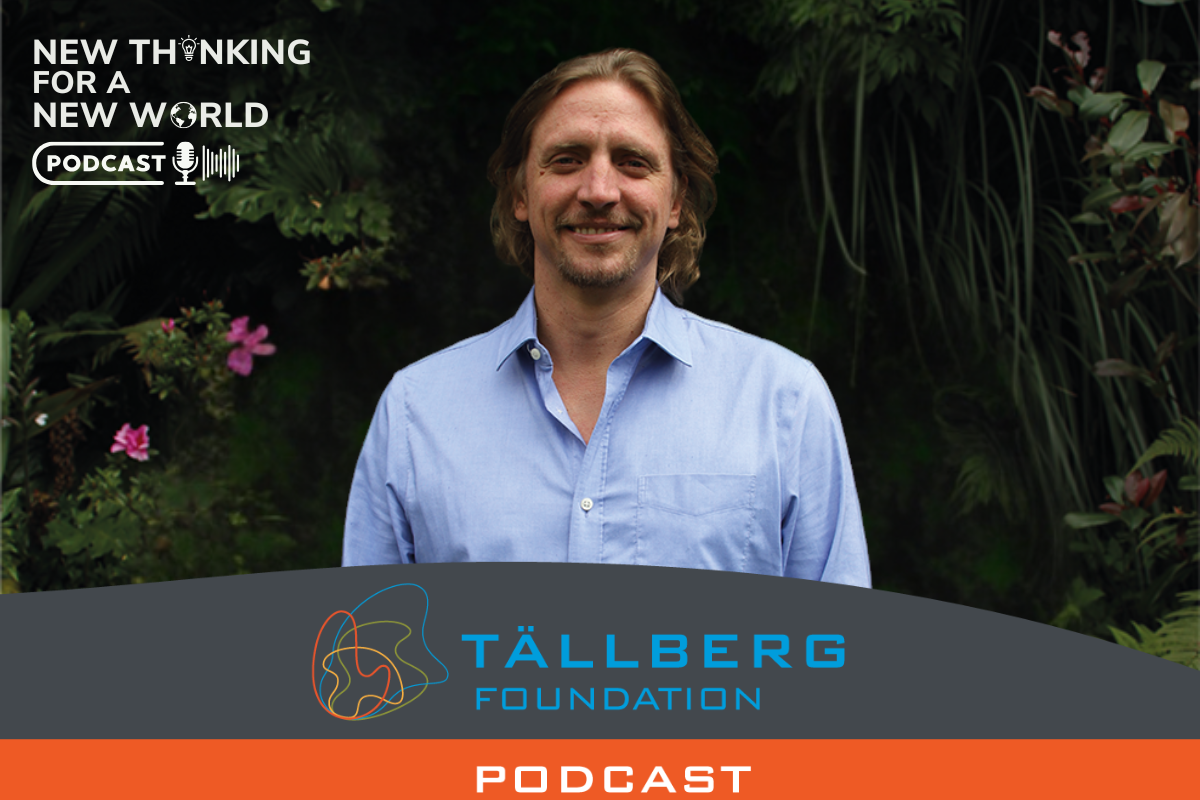American Carnage or American Dream? It matters to everyone everywhere whether or not the United States is in terminal decline or (painfully) resetting the basis of its democracy and its society. If the former, the global order will change in incalculable ways, for better or for worse. If the latter, life after the pandemic could actually be better.
In Tällberg’s New Thinking for a New World podcast series, Alan Stoga asks three global thinkers—a Mexican journalist (Ana Paula Ordorica), a Kenyan poet (Sitawa Namwalie) and a Congolese choreographer (Faustin Linyekula)—what they think is happening in America now. Let us know in our social media channels what YOU think.
Listen to the episode here or find us on a podcast platform of your choice, (Itunes, Spotify, Acast, Stitcher, Libsyn, etc).
About the guests
Faustin Linyekula is a dancer, choreographer, director and storyteller as he defines himself and he lives in Kisangani, Democratic Republic of Congo.
He is the founder of the Studios Kabako (2001), a space dedicated to dance, visual theatre, music and film, providing training programmes, supporting research and creation and fostering Congolese artists to tell their own stories.
In Kisangani, Studios Kabako are also working with communities of the Lubunga district around environmental and sustainability issues as well as education. Or how to speak to a city from its most fragile part? Linyekula’s pieces are touring worldwide.
In 2007, he received the Principal Award of the Prince Claus Fund for Culture and Development and in 2014, the first Prize of the CurryStone Foundation for the work developed with young artists and communities in Kisangani. In 2016, he was associate artist to the city of Lisbon and in 2019 to the Holland Festival. In 2018, he was awarded the first Soros Arts Fellowship.
Sitawa Namwalie is an award winning Kenyan poet, playwright and performer known for her unique dramatized poetry performances which combine poetry and traditional Kenyan music to create performances. Her growing body of work includes “Cut off My Tongue,” performed in East Africa and at the Hay Festival 2009; “Homecoming” (2011), “Silence is a Woman”, (2014) and “Performing Nairobi: The Stories and Drama of a City”, two plays, “Black Maria on Koinange Street” and “Room of Lost Names” (2015).
Curator for photographic exhibition entitled, “Our Grandmother’s in Miniskirt” crowd sourced photographs and stories of Kenyan women from 1900 to 1980s.
Sitawa has worked with the United Nations and the World Bank. She holds a BSc. in Botany and Zoology from the University of Nairobi and an MA from Clark University in Massachusetts, USA. Sitawa has achieved excellence in many areas of life, including representing Kenya in tennis and hockey in her youth.
Ana Paula Ordorica is a journalist based in Mexico City. Host of the A las Tres program on FOROtv, Televisa. She is an columnist for the newspaper El Universal with her column Brújula, where she specializes in issues of national and international politics. She is also the host of the daily podcast Broojula and an author.




Hello!
It is very hard to see what is happening in the USA as demonstrations against racism. When everything is false and politically manipulated by dark forces…
If really the USA is a racist country, OBAMA would never have been President. Also, the 50,000 new immigrants, from all countries and all races, who arrive each year in the USA, through DV Lottery, are there to demolish this gratuitous accusation of racism against the USA.
On the other hand, the laws of the United States are tangible proof to discredit all those who accuse the United States of racism.
Therefore, it is very much to be feared that these dark forces will want to raise the black minority, like other countries, to create problems for the Government…
Neither a carnage nor a dream. It is not fair, it is racist, it is sexist, it is generationist, it is …unfair. Violence and denials will not change this situation. What can we do then? Well, like all valuable things, it takes work. And because of the urgency of the problem we need to get at work, now. In an exponentially globalizing world, we urgently need the abilities to engage diversity and change. We do not have them. As for mathematics, we need to develop and practice them. If you think you have arrived, that you already have acquired those abilities, you are part of the problem in a very particular way, as you are unaware that you do not have them but maintain the illusion that you do so. None of us really have what it takes. I have traveled for work and lived on 4 continents. I did not meet any that I would consider arrived. Yes, by far not me either. But, thanks to the Swiss development Cooperation, I have acquired tools to develop those abilities, which I have applied for the last 30 years. And, yes, I “pay it forward”, to any interested. Stop thinking you are a “mathematician” and get to work!